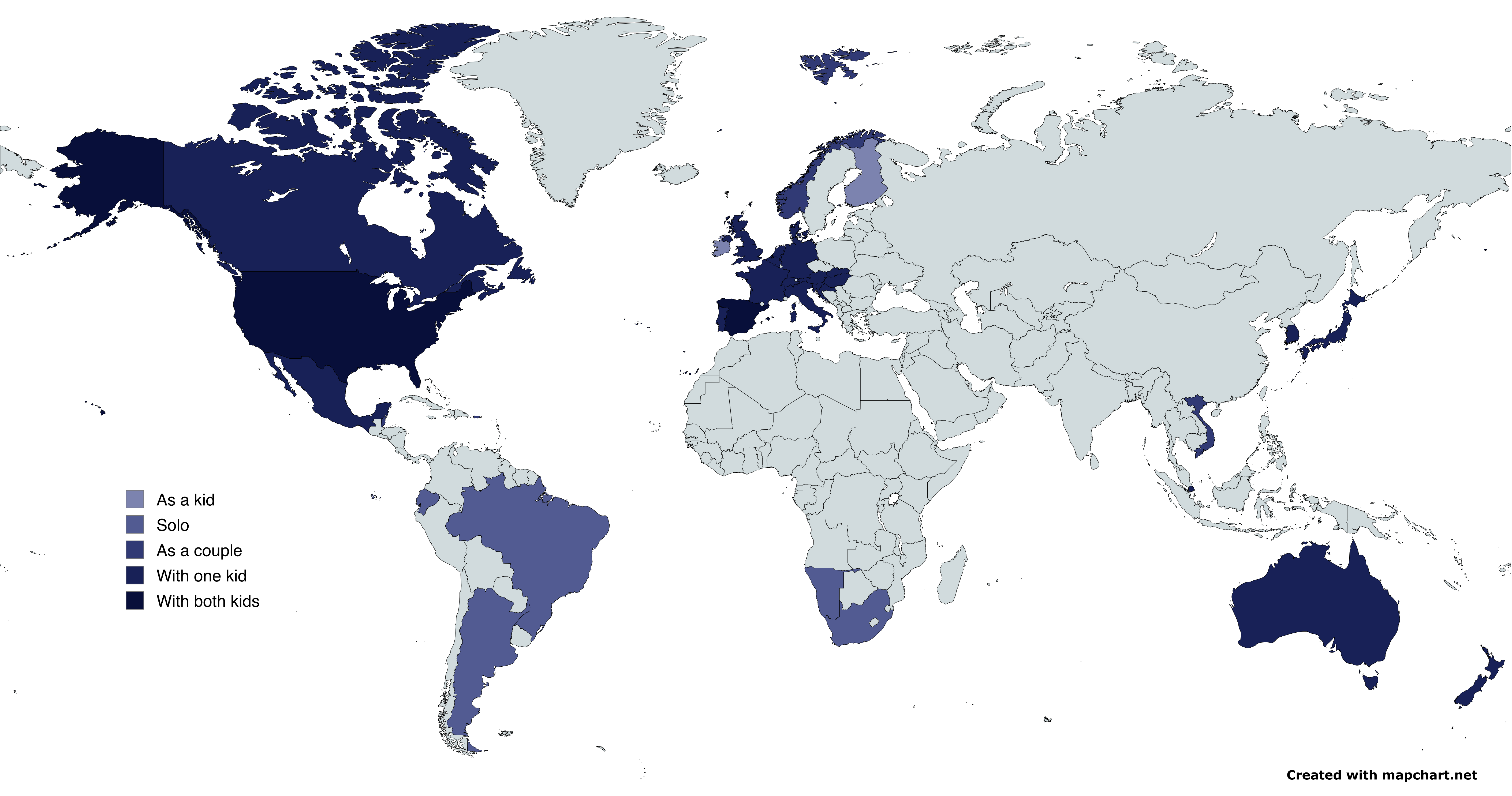 Gage Newman
Gage Newman
Contact info
anything (at) gagenewman (dot) com
Experience



Interests
Parenting | History | Energy | Exploration | Entrepreneurship | FIRE
Projects
Reading
The best books I've read recently:
Everything like before (Askildsen)
The moon is down (Steinbeck)
Wave (Deraniyagala)
City of Quartz (Davis)
Circe (Miller)
The Sellout (Beatty)
The spirit catches you and you fall down (Fadiman)
Ohio (Markley)
Travelers (Habila)
The art of fielding (Harbach)
A little life (Haniyagawa)
A stone is most precious where it belongs (Gulchehra)
Fossil capital, Malm
The ends of the world (Brannan)
Travel
I've traveled a bit, and would like to travel more.
We traveled around quite a bit with our son including to the wonderful National Parks in the American Southwest (Zion, Bryce Canyon, Arches, Grand Canyon, &c.) as well as to many places farther afield, 20 countries in all.
Some highlights from previous travels: hiking in Tromsø under the "midnight sun"; exploring the sun festival in Otavalo; hiking from downtown Cape Town to Kirstenbosch over Table Mountain; watching the sun come up over the Mediterranean from Cadaqués.

Writing
On making a website
People often ask me about making websites. Instead of trying to remember and recollect my thoughts on that topic for each person that asks, I’ve decided to write down what I think in one place. What follows are some of the things I’ve learned over the past ten years of making websites for myself and others in my career as a freelancer, as part of a design studio, and as a software engineer.
First: design and inspiration.
Having your own ideas is great, but unless you’d describe yourself as a designer, I wouldn’t recommend designing your own website. Instead, look around at websites of people that do similar things to you, develop your taste by figuring out what you like and dislike about their websites, and use their existing designs as a template for your own website. This will make it much easier to come up with a website design that is coherent, and it will also make it much easier for you to communicate the specifics of the website you want to your web developer (or allow you to more easily build it yourself).
Second: website structure and hosting.
If you live in the modern world, or listen to podcasts, you’ve heard of Squarespace and Wix. That’s great. They serve a niche in website creation, but it’s probably smaller than what you might think. I classify ideas for websites by two things: how often they’ll be updated, and how they’ll be updated.
Class 1: websites that either will not be updated, or will be updated in simple ways (slightly changing copy, adding new entries of templated sections). For these websites, all it takes is building it once and it’s pretty much set. Any updates can be done by “going into the code” (gasp! It’s actually much simpler than you would think) and changing words or straightforwardly copying and pasting other bits. These websites can be hosted for free in several places (GitHub pages, Netlify, &c.) and the only ongoing cost of them is the domain name (~$9/yr).
Class 2: websites that will be updated in more complicated ways or by people who are uncomfortable with text and prefer to use GUIs (graphical user interfaces) or website builder wizards. These websites might have blog posts on them, where each blog post has its own semi-complicated format, or you might be regularly adding pages that are more “designed”. This is where Squarespace (or Wix, or Wordpress) can be more handy, as they all allow you to drag-and-drop images and text into a semi-custom layout. Of course, this handiness comes at a cost - these are either ~$10/mo (Squarespace, Wix) or free but require server hosting at ~$5/mo (Wordpress) - and they’re always trying to upsell you on themes or templates or plugins.
Class 3: websites that will be updated in response to user input. These are what people call “apps,” and they require a server and a database to store and process those user actions. This server can either be custom, written by software engineers that you are paying (Facebook is an “app,” for example, with thousands of software engineers constantly working on its design and functionality), or out-of-the-box (I’d classify Shopify as an “app,” where their software records and processes user interactions with your site). There are ways to do this for cheap, but in general building this class of website requires either a lot of money or a lot of expertise, or both.
Third: content.
Content is king. If you have interesting content, then show it off - write things that are interesting, display pictures that are cool, or showcase engaging video content. If you want the same people to visit your site over and over again (the way that people check Facebook, Reddit, Instagram, TikTok, Twitter, or Substack), then you’ll need to update it regularly. Getting yourself into a routine where you can regularly update your website's content will be important. If, however, you care more about rarer visits from different people, then you won't need to update your content quite so much.